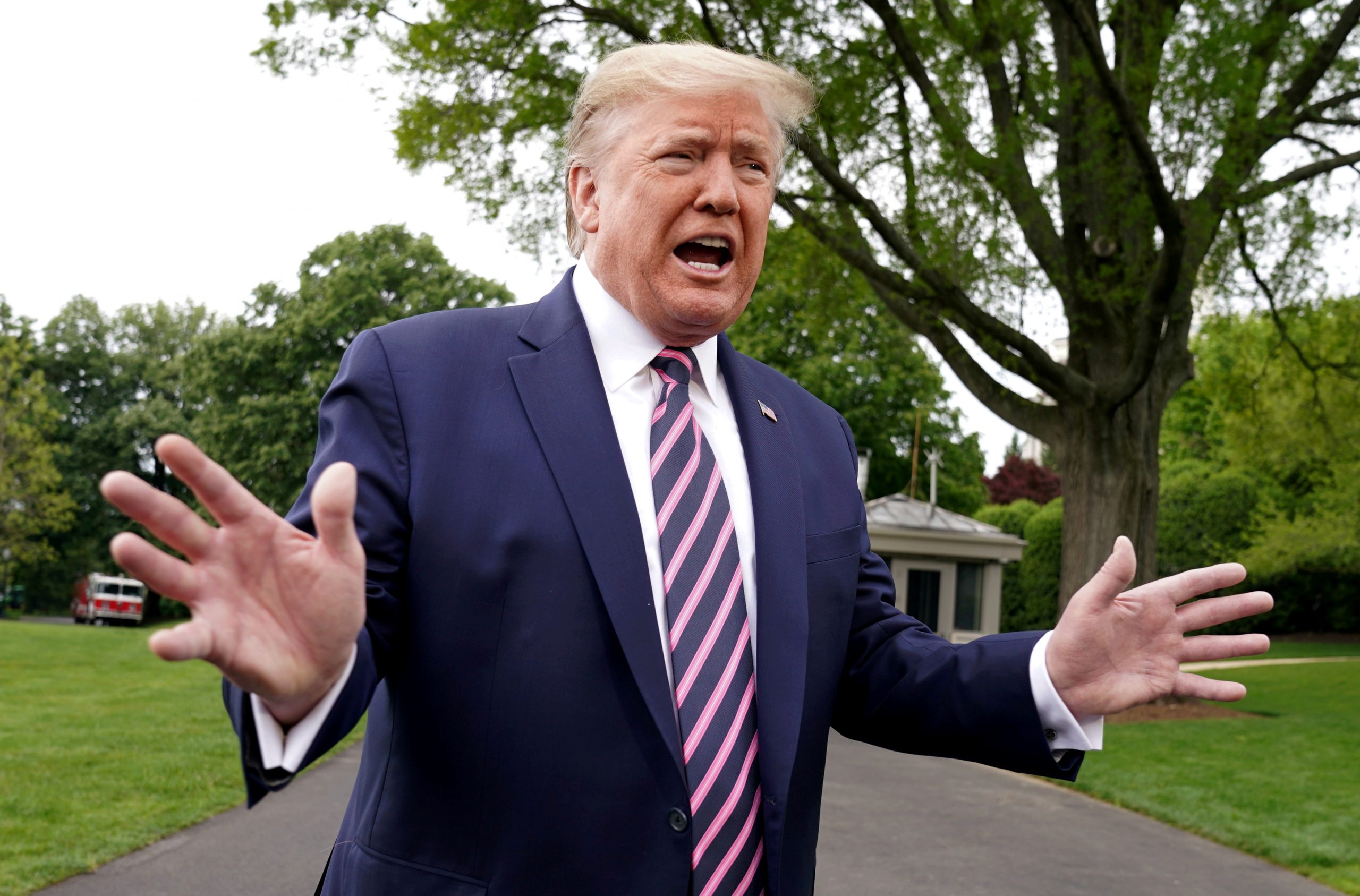Michigan’s governor will announce on Thursday that the state’s factories can reopen next week, removing one of the last major obstacles to North American automakers getting thousands of workers back to plants closed by the coronavirus pandemic, two people familiar with the plans said.
Governor Gretchen Whitmer had been holding off lifting restrictions on manufacturing, drawing protests and stymieing efforts to restart vehicle assembly anywhere in the United States because so many critical parts suppliers are based in Michigan, home to Detroit, known as the Motor City.
Whitmer was due to provide an update of the state’s handling of the coronavirus outbreak at 3 p.m. EDT (1900 GMT).
Hours earlier the Labor Department reported that 3.2 million Americans claimed unemployment benefits for the first time last week, bringing the total to about 33.5 million since March 21.
“The U.S. labor market is in the worst position since the Great Depression and is unlikely to improve sustainably anytime soon,” said Ron Temple, head of U.S. equities at Lazard Asset Management in New York.
Many U.S. states have begun easing restrictions on social and business life, including Florida, Georgia and Texas, even though they have yet to meet White House guidelines issued in April to hold off until the number of new coronavirus cases has declined for two weeks, among other recommendations.
More than 74,000 Americans have died from COVID-19, the respiratory disease caused by the highly infectious novel coronavirus, out of the more than 1.2 million known to be infected, according to a Reuters tally.
The White House recently shelved specific, step-by-step guidelines prepared by U.S. health officials aimed at helping states figure out how to safely reopen mass transit, restaurants, daycare centers and other public places, an administration official said on Thursday.
The 17-page document prepared by the Centers for Disease Control and Prevention (CDC), was rejected because it gave “overly prescriptive” guidance, said the official, a member of President Donald Trump’s White House task force, confirming a news report by the Associated Press.
The White House official, who declined to be identified, said the task force had asked for revisions to the document, but could not confirm that it will ever be issued. The CDC did not immediately respond to a Reuters request for comment.
“Guidance in rural Tennessee shouldn’t be the same guidance for urban New York City,” the official told Reuters.
In New York and New Jersey, the country’s two hardest-hit states, bars and retail businesses deemed non-essential remain have been closed and restaurants are limited to takeout and delivery business. In Georgia and Texas, most retail and dine-in restaurants are open, albeit with restrictions on how many people can be served and how close tables may be to one another.
Trump has largely allowed governors to determine their own response to the outbreak but has encouraged them to start reopening, concerned by the economic devastation caused by the national shutdown. The president, who is seeking a second term in a November election, has staked his re-election bid on the strength of the economy.
Public health experts have warned against reopening too soon, saying it could fan hot spots of infection and a second spike in deaths.
HODGEPODGE
With decisions left to the states and localities, the country’s reopening has been a hodgepodge, ranging from cautious to aggressive.
Los Angeles Mayor Eric Garcetti announced that starting on Friday, florists, toy stores, music stores, bookstores, clothing and sporting goods stores may offer curbside pickup. Car dealership showrooms may open. Starting on Saturday, Los Angeles residents may return to golf courses, some parks and trails.
Seattle’s King County, an early virus hotspot, plans to reopen hiking trails and more than 28,000 acres of park space on Friday, though restrooms, picnic shelters and playgrounds will remain closed.
In general, states have kept their public transportation systems running but closed their public school buildings and switched to remote teaching for the rest of the academic year.
Although many guidelines remained in place – for example on social distancing and wearing masks – there were signs people were disregarding them.
On Cinco de Mayo on Tuesday, people were seen partying in groups in Atlanta, Georgia, and crowding at least one takeout restaurant in New York City.
New York Governor Andrew Cuomo has in recent days started to outline the criteria for loosening restrictions on businesses in his state, after a three-week decline in hospitalizations and a downtrend in the daily death count.
On Thursday, Cuomo extended the ban on evictions from rental properties, due to expire on June 20, for another 60 days, and announced that the state would prohibit late fees on any missed payments.
“The number one issue that people talk to me about probably is rent and fear about being able to pay their rent. And this just takes that issue off the table until Aug. 20,” he said in his daily briefing.
(Reporting by Ben Klayman in Detroit and David Shepardson in Washington; Additional reporting by Alexandra Alper, Maria Caspani, Susan Heavey, Nathan Layne and Lucia Mutikani; Writing by Sonya Hepinstall; Editing by Howard Goller)

























 Continue with Google
Continue with Google